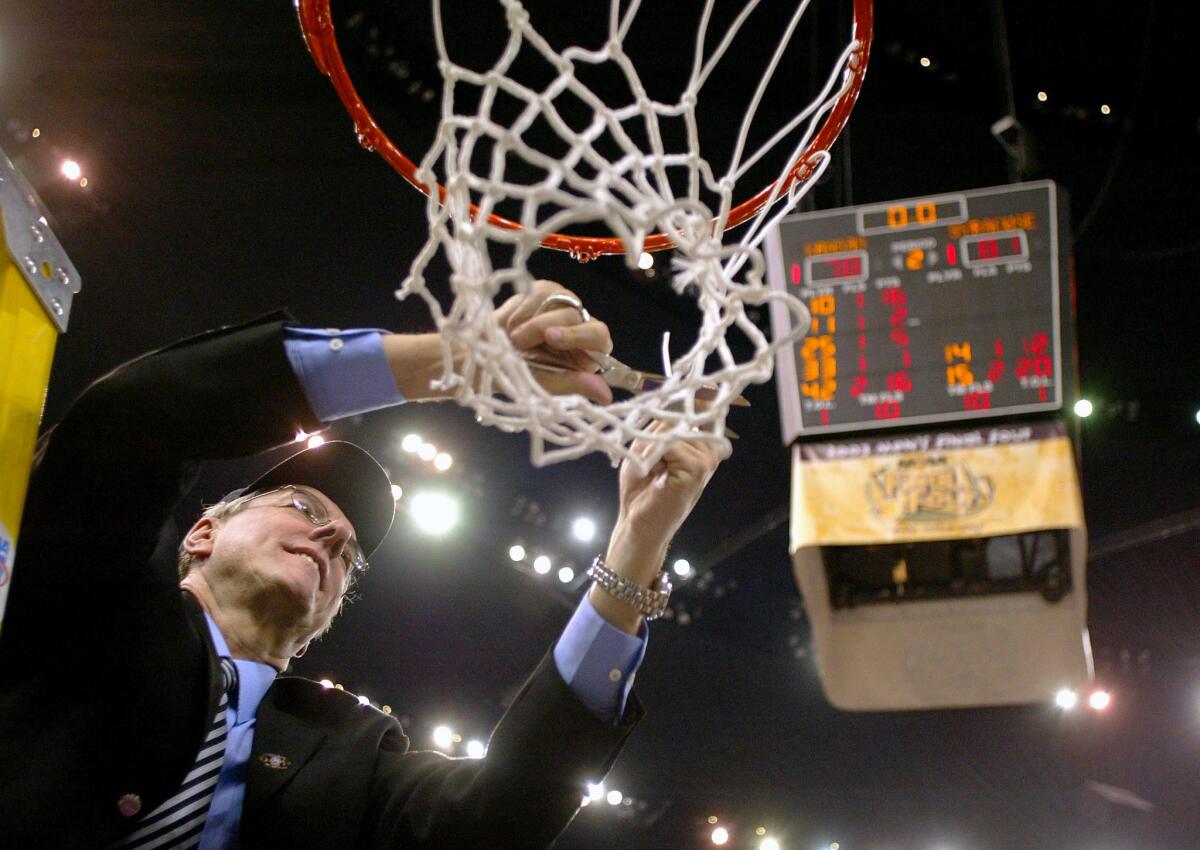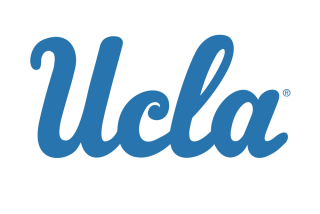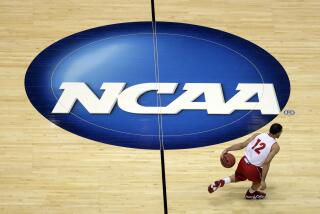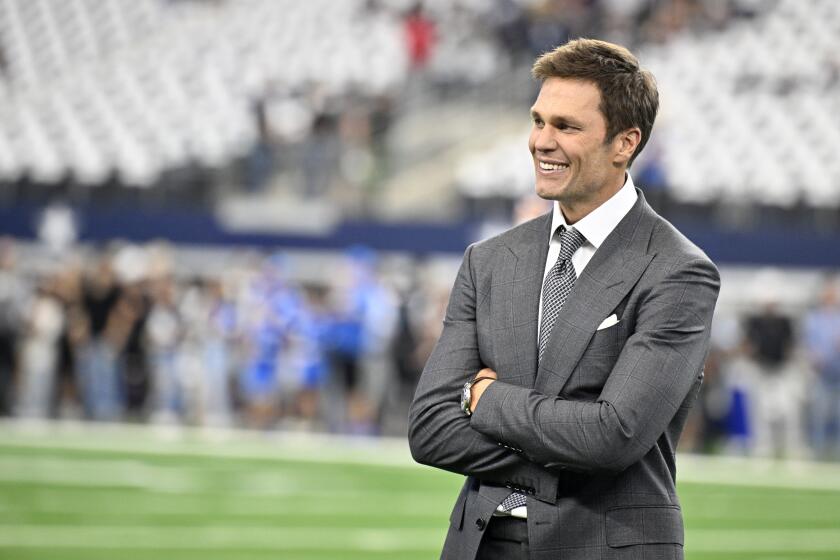Commentary: What a shock: NCAA sanctions against Syracuse don’t affect 2003 title

The NCAA needs to sponsor a “Shell Game” championship, given its continued excellence in that sport.
The governing body of college athletics, even in handing down severe sanctions against Syracuse basketball on Friday, continues to send a time-honored message: Winning trumps all.
Now, the news at Syracuse certainly was not good. The NCAA suspended Coach Jim Boeheim for nine games next year, proving again that active coaches should never be elected to the Hall of Fame. But that’s another story.
The NCAA cited Syracuse for violations dating to 2001 and forced the school to vacate 108 victories. It also docked the basketball program 12 scholarships over the next four years.
Here, though, is the beautiful part.
The NCAA brilliantly kept alive its streak of never stripping a college basketball team of its national title.
The vacation of games levied against Syracuse skipped right over 2003, the year Carmelo Anthony led the Orange to the NCAA title.
Whew...what a fortunate hop-scotch of justice. Or, actually, this is the way it always works.
The official NCAA record book is riddled with asterisks for teams that have had to vacate things that don’t matter. Two of John Calipari’s teams (Massachusetts, Memphis) were forced to vacate Final Four appearances, but of course not the championship he won at Kentucky.
Michigan’s “Fab Five” Final Four trips of 1992 and 1993 were rescinded by sanctions--good thing the Wolverines didn’t win it those years.
Isn’t it interesting that UCLA has won a record 11 NCAA titles but had only had vacate a Final Four it didn’t win, under Larry Brown, in 1980?
The NCAA eviscerated Ohio State’s non-winning Final Four run of 1999, demanding in Soviet-era style that statistics be purged from the annals of history.
Minnesota had to vacate the 1997 Final Four that Arizona won.
It just so happens, conveniently, that no NCAA championship team has committed a crime worthy of forfeiture.
Syracuse will pay a price for its misdeeds, but not the ultimate one.
What about USC’s football championship of 2004? Didn’t the NCAA strip the Trojans of the championship?
No, the NCAA was only in charge of the over-the-top sanctions handed down in the Reggie Bush case.
The NCAA does not run college football, never has, and thus the Trojans were stripped by the six power-conference commissioners who ran the now extinct Bowl Championship Series.
If USC wants to sue the BCS over that title, good luck, because the BCS folded.
It is interesting to note that Daryl Gross, the Syracuse athletic director in charge during much of the infractions-filled last decade, once served under Mike Garrett at USC.
The lesson of Friday’s announcement was clear: The NCAA will not tolerate chicanery but also will not take away the reason why most schools cheat: to win titles that will be cherished forever.
The reason is obvious: the NCAA, running more scared than ever, doesn’t want to get sued.
Up next on the NCAA duplicity docket is the academic fraud case embroiling the University of North Carolina, one of the pillars of the college basketball community.
Nervous Tar Heel fans can probably rest easy knowing that--no matter how serious or systemic the cheating turned out to be over the last two decades--none of it happened in the glorious championships seasons of 2005 and 2009.
We can safely assume, however, that North Carolina’s Final Four appearance in 2008--the year Kansas won--could be in serious, serious jeopardy.
Follow Chris Dufresne on Twitter @DufresneLATimes
More to Read
Go beyond the scoreboard
Get the latest on L.A.'s teams in the daily Sports Report newsletter.
You may occasionally receive promotional content from the Los Angeles Times.











